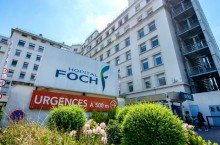CIO en VO : des déchets électroniques américains stoppés à Hong-Kong par Greenpeace
L'exportation de déchets toxiques (dont les déchets électroniques) est généralement totalement interdite. Ce qui n'empêche pas certains de s'en débarrasser à moindre coût dans les pays en développement. Greenpeace a ainsi stoppé une cargaison d'origine américaine à Hong Kong.
PublicitéEnvironmental group Greenpeace said it identified three containers of electronic waste as they were about to be unloaded in Hong Kong Port over the weekend. The group said the three containers were on the "Yang Ming Success" that had sailed to Hong Kong from the U.S. port of Oakland and were destined for the Sanshui district in neighboring Guangdong province. That meant the shipment was illegal under Chinese law, Greenpeace said. In a video distributed by the group to news organizations, Greenpeace supporters that had boarded the ship can be seen unfurling a banner along the side of containers that read in English and Chinese, "Toxic waste not welcomed here." In response Hong Kong's Environmental Protection Department has ordered the containers be held on the pier until the owner opens them for inspection, said Lo Sze Ping, a campaign director for Greenpeace. The Hong Kong authorities could not be immediately reached for comment. Greenpeace said that Hong Kong is a major transit point for electronic waste because of several loopholes in the territory's environmental protection regulations. Among them, importers can easily claim the waste is for recycling or reuse to escape the controls, the group said. It also charged the Environmental Protection Department, which issues the import and export permits, with concentrating on waste like old batteries and paying little attention to printed-circuit boards. The issue of e-waste is one that the Amsterdam-based group is fighting. Between 20 million and 50 million tons of electronic waste is produced each year but 75 percent of it disappears. That's a problem for the environment because if it is not properly disposed, the toxins found inside, including lead, beryllium, PVC, phthalates and brominated fire retardants can poison the environment and damage human health. Of particular concern in the region is the Chinese city of Guiyu, which is also in Guangdong province. The city is one of the biggest electronic waste recycling centers on earth but the informal industry is centered around primitive, small-scale factories where products are dismantled by hand. The work is often done with little regard for health of the workers or the environment.
Article rédigé par
CIO Etats-Unis / IDG News Service
Partager cet article
Articles à la une

En quête de souveraineté, la Caisse des Dépôts mise 18 Md€ sur le numérique d'ici à 2030

Monica Caldas, Liberty Mutual : « les DSI vivront dans un monde d'intelligence collaborative et de multiagents »








Commentaire
INFORMATION
Vous devez être connecté à votre compte CIO pour poster un commentaire.
Cliquez ici pour vous connecter
Pas encore inscrit ? s'inscrire